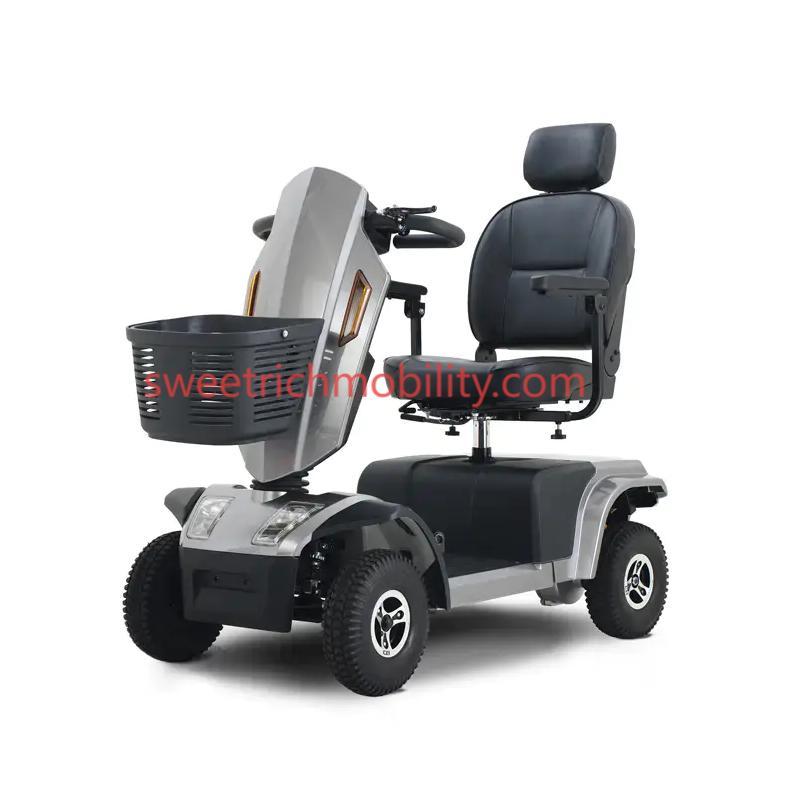Sweetrich Scooters Leading the Sustainable Battery Revolution

Urban travelers are increasingly turning to sustainable transport choices, and the growing interest in the Wholesale Mobility Scooter market reflects this change. One reason for its popularity lies in how battery systems have evolved. Unlike earlier models that struggled with consistency, today’s scooters integrate reliable energy solutions that support longer rides, quicker charging, and efficient power management. This progress demonstrates how innovation in energy design directly enhances user confidence and makes scooters more practical for daily commutes.
The shift toward advanced energy solutions means riders experience dependable journeys that require fewer interruptions. Smooth operation combined with consistent performance contributes to a sense of security while navigating busy city environments. Manufacturers also recognize the need for eco-conscious approaches, adopting recyclable materials for casings and extending the usable lifespan of energy units. Such advancements not only reduce waste but also reinforce sustainability goals within urban planning.
Vehicle frames have also undergone significant transformation. Lightweight alloys, strengthened composites, and modular parts provide a balance between strength and portability. By reducing unnecessary weight, scooters become easier to maneuver and store, making them suitable for compact living spaces. The design emphasizes long-term usability, with replaceable parts ensuring that one malfunction does not render an entire scooter obsolete. Durability and adaptability become defining features, allowing these vehicles to remain relevant in evolving transportation networks.
Sustainability is further reflected in the way scooters align with urban ecosystems. Compact design reduces congestion, while quieter operation contributes to lower noise levels in neighborhoods. Local authorities seeking cleaner transportation alternatives find scooters to be compatible with larger infrastructure strategies, including integration with transit hubs and parking solutions. Their versatility demonstrates how small-scale mobility tools can strengthen entire transportation systems.
Battery performance also supports these broader roles. Riders benefit from dependable energy reserves that make longer commutes feasible without anxiety about interruptions. Meanwhile, developers continue to test new approaches to energy storage, with a focus on increasing efficiency while minimizing environmental impact. When combined with recyclable scooter structures, the result is a travel solution that promotes ecological responsibility without sacrificing convenience.
In addition, scooters play a role in reducing reliance on conventional travel modes. Their presence on roads represents a shift toward smaller, more sustainable transport options that complement larger public transit systems. Instead of competing with buses or trains, scooters serve as connectors, bridging the gap between main stations and final destinations. This role highlights their growing importance in urban ecosystems where efficient, clean solutions are increasingly valued.
As consumer expectations evolve, scooters must continue to demonstrate value through both practicality and responsibility. Buyers seek reassurance that their purchase contributes positively to the environment, supports sustainable design, and provides reliable daily use. The combination of innovative battery systems and eco-friendly frames directly answers these concerns.Brands that embrace this philosophy, such as those available at http://www.sweetrichmobility.com/ ., illustrate how modern scooters embody both technological progress and sustainable responsibility.
- Art
- Causes
- Crafts
- Dance
- Drinks
- Film
- Fitness
- Food
- Juegos
- Gardening
- Health
- Home
- Literature
- Music
- Networking
- Other
- Party
- Religion
- Shopping
- Sports
- Theater
- Wellness



